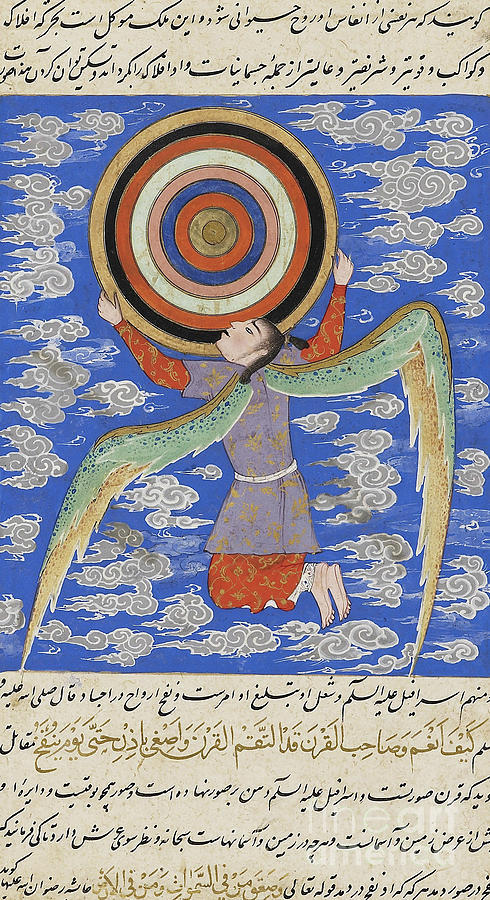Belief in Angels is one of the six Articles of Faith in Islam. They are considered heavenly beings w
Belief in Angels is one of the six Articles of Faith in Islam. They are considered heavenly beings without their own will unlike humans who perform tasks of God. The imagination of angels in Islam developed from the Quran and was influenced by other religions like Judaism and expanded by tafsir (exegesis) and the hadith literature.Angels take the role of intermediaries performing different tasks of God. They are (mostly) said to be created out of light. Unlike humans or jinn, they have no biological needs and therefore no lower desires predicted by the natural world. They may be described as creatures of pure emotion. It has been said that angels lack free will since they are known from the Quran to strictly obey what God commands; but different schools of Islam debate the extent of free will which angels have not as beings of endowed with human reason but as beings who may error, and if they are endowed with free will they are not subject to temptation. The implications of a well-known hadith concerning an argument that took place between the angels of Mercy and the angels of Punishment about what to do with a notorious murderer who repented of his crimes but died before reaching a pre-destination that would have ensured his forgiveness. This can be seen in Islamic scholarly analysis which suggests the decision-making framework of angels is different from that of mankind, as their souls are composed of light rather than mud-like clay. Additionally, angels are viewed as the original state of a soul, before it touches the earthly plane. Those who stay in heaven, remain as angels. Angels rank lower than humans, because they are, as already flawless and desire less beings, not capable to love God like humans do. Then humans die, they can return to the heavenly spheres with all deeds, experiences and thoughts accomplished on the earthen plane. Some examples of angels in Islam:1. Jibrail: the archangel Gabriel (Jibra'il or Jibril) is an archangel who serves as a messenger from God.2. Michael (archangel): or Mikail, the angel of nature.3.Israfil : is the angel of the trumpet in Islam,though unnamed in the Qur'an. Along with Mikhail, Jibrail and Izra'il, he is one of the four Islamic archangels. Israfil will blow the trumpet from a holy rock in Jerusalem to announce the Day of Resurrection. The trumpet is constantly poised at his lips, ready to be blown when God so orders.4.Darda'il: the angels who travel in the earth searching out assemblies where people remember God’s name.5. Azrael is Azraa-ee or Izrail: the Angel of Death. No authentic reference of this in Quran or Hadeeth. Only referenced as angel of death.6. Kiraman Katibin: the two angels who record a person’s good and bad deeds.7. Mu'aqqibat: a class of guardian angels who keep people from death until their decreed time.8. Munkar and Nakir: the angels who test the faith of the dead in their graves. They ask the soul of the dead person questions. If the person fails the questions, the angels make the man suffer until the Day of Judgement. If the soul passes the questions, he will have a pleasant time in the grave until the Day of Judgement.9. Ridwan: the angel in charge of maintaining Jannat or Paradise.10. Maalik: the angel who keeps or guards hell fire11. Harut and Marut are two angels mentioned in the second Surah of the Qur'an, who were sent down to test the people at Babel or Babylon by performing deeds of magic. (Sura Al-Baqara, verse 102.) The Qur'an indicates that although they warned the Babylonians not to imitate them or do as they were doing, some members of their audience failed to obey and became sorcerers, thus damning their own souls.(read more) -- source link
#islam#islamic angels#islamic arts#art history
